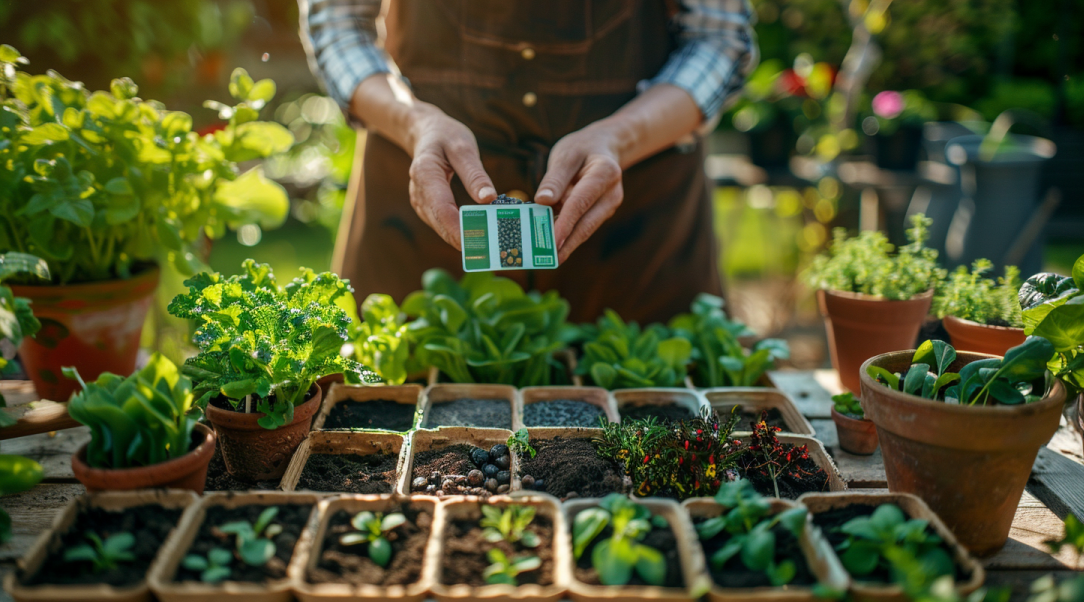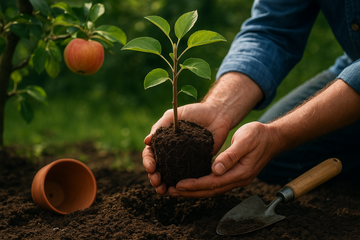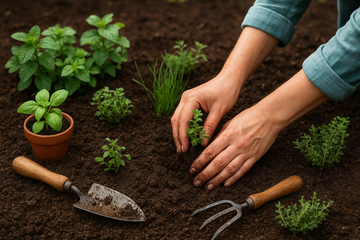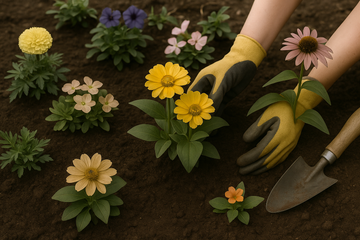Starting a garden is exciting — but for beginners, choosing the right seeds for your garden can feel overwhelming. Visit any garden center or browse an online seed store like Seedschoice.com, and you’ll see hundreds of varieties of vegetable seeds, flower seeds, fruit seeds, herb seeds, and organic seeds.
The good news? With the right approach, you can easily find seeds that match your climate, garden space, and gardening goals. In this beginner-friendly seed buying guide, we’ll cover everything from understanding your growing conditions to selecting beginner-friendly crops. By the end, you’ll know exactly how to pick seeds that will grow into a garden you’ll love.
Step 1: Understand Your Garden’s Growing Conditions
Before you buy seeds, take time to assess your garden’s environment. The best seeds for beginners are the ones that thrive where you plant them.
Check your growing zone:
Your USDA hardiness zone or equivalent tells you which plants will survive your winters. Enter your ZIP code or location into an online zone finder. Match your zone to the planting information on each seed packet.
Know your frost dates:
-
Last frost date: Tells you when it’s safe to plant warm-season crops like tomatoes, peppers, and beans.
-
First frost date: Helps you plan your fall harvest.
Assess sunlight exposure:
-
Full sun (6+ hours) → Great for most vegetable seeds and fruiting plants.
-
Partial shade (3–6 hours) → Ideal for leafy greens, herbs, and shade-friendly flowers.
-
Full shade (<3 hours) → Limited options, but certain herbs and ornamentals can thrive.
Check soil type:
-
Loamy soil → Best for most plants.
-
Clay soil → Retains water; amend with compost.
-
Sandy soil → Drains quickly; enrich with organic matter.
💡 Pro tip: If you’re unsure, start with easy-to-grow seeds like lettuce, radishes, and marigolds.
Step 2: Define Your Gardening Goals
Your garden’s purpose determines which seeds you should choose.
-
For fresh produce → Shop vegetable seeds for your home garden. Start with tomatoes, cucumbers, lettuce, zucchini, and peppers.
-
For colorful blooms → Explore buy flower seeds online for sunflowers, zinnias, and marigolds.
-
For cooking herbs → Browse herb seeds for kitchen gardens like basil, parsley, dill, and chives.
-
For sweet harvests → Check fruit seeds for backyard gardens such as strawberries and melons.
Many gardeners mix vegetables, herbs, fruits, and flowers for a space that’s both beautiful and productive.
Step 3: Learn About Seed Types
Knowing the difference between seed types will help you shop smart.

Organic seeds:
Grown without synthetic chemicals, certified organic seeds are great for eco-conscious gardeners.
Heirloom seeds:
Traditional varieties known for flavor, color, and the ability to save seeds for future seasons.
Hybrid seeds (F1):
Bred for traits like disease resistance or higher yields. They grow well but won’t produce identical seeds for replanting.
Specialty seeds:
Visit our Seeds by Solution category for drought-tolerant plants, pollinator-attracting flowers, and container-friendly crops.
Step 4: Match Seeds to Your Experience Level
Not all seeds require the same care. Choose varieties that suit your skill level.
Best seeds for beginners:
-
Vegetables: Lettuce, radish, zucchini.
-
Herbs: Basil, parsley, chives.
-
Flowers: Sunflowers, marigolds, nasturtiums.
Intermediate level: Tomatoes, peppers, cucumbers, cosmos flowers.
Advanced: Melons, cauliflower, perennial flowers.
Step 5: Plan for Harvest and Bloom Times
A well-planned garden produces continuously.
Vegetables: Use succession planting — sow lettuce, carrots, or beans every two weeks.
Flowers: Mix early, mid, and late bloomers for season-long color.
Herbs & fruits: Re-seed basil during summer; stagger fruit plantings for extended harvests.
Step 6: Store Extra Seeds for Next Season
If you buy seeds in bulk, store them in a cool, dry, dark location inside airtight containers. Many seeds last 2–5 years if stored correctly.
FAQ: Choosing the Right Seeds for Your Garden
Q: What are the best seeds for beginners?
A: Easy seeds to start with include lettuce, radish, basil, zucchini, and sunflowers. They germinate quickly and require minimal care.
Q: How do I know which seeds grow in my area?
A: Check your USDA growing zone and frost dates, then match them with the planting recommendations on seed packets.
Q: Should I buy organic or conventional seeds?
A: If you prefer eco-friendly gardening, choose certified organic seeds. Conventional seeds can still be high quality, but may be grown with synthetic inputs.
Conclusion – Start Your Dream Garden Today
Choosing the right seeds for your garden doesn’t have to be complicated. By knowing your growing conditions, setting goals, and picking seed types that suit your skills, you’ll set yourself up for success.
Explore our full range and start planting today:
Your perfect garden starts with the perfect seeds — find yours at Seedschoice.com.












